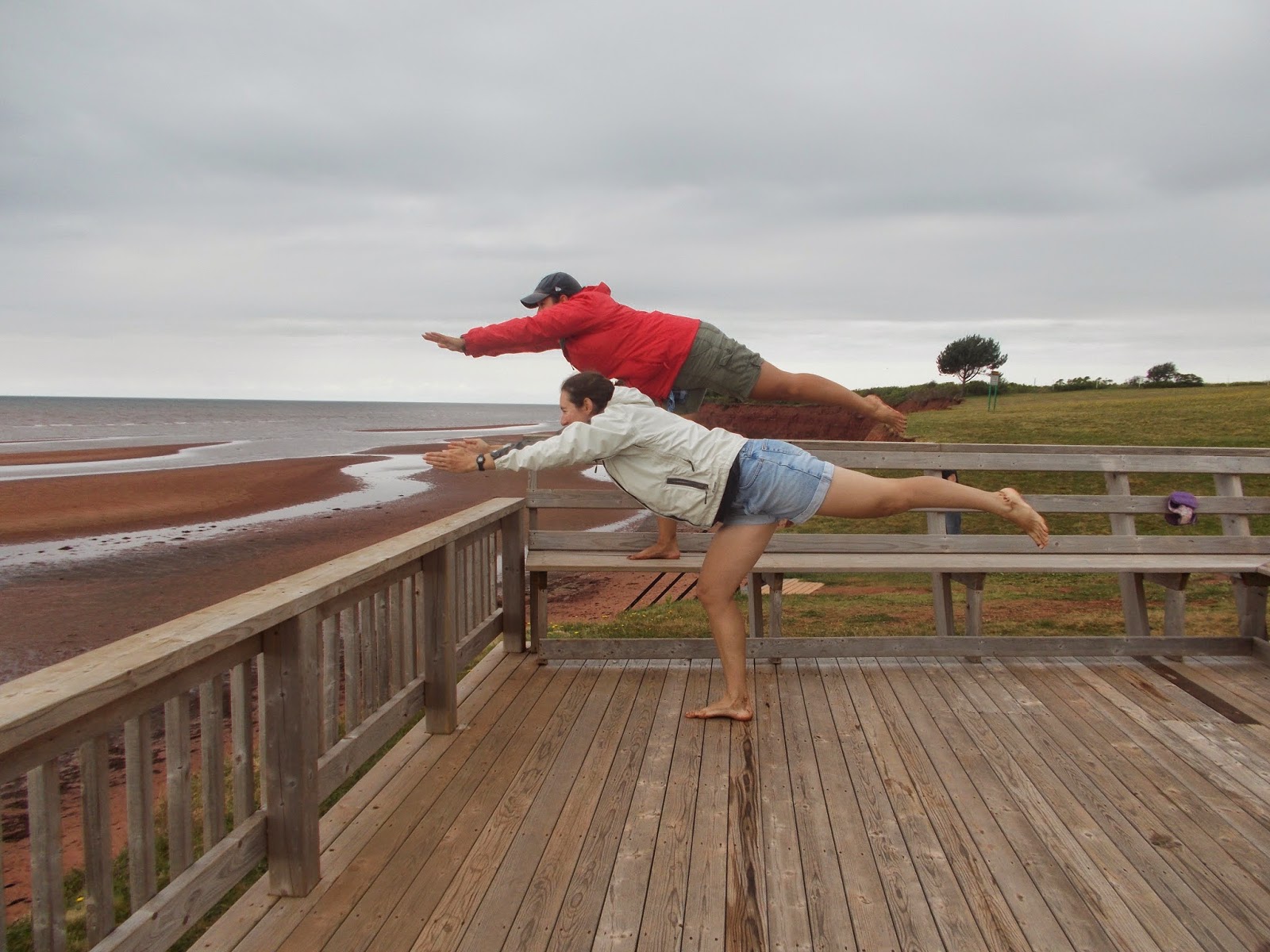“When I was down beside the sea
A wooden spade they gave to me
To dig the sandy shore.
My holes were empty like a cup
In every hole the sea came up
Till it could come no more.”
Robert Louis Stevenson
I love Robert Louis Stevenson’s, “ A Child’s Garden of
Verses” for so many of them catch the essence of a childhood experience. Digging holes by the sea was something I did
as a child, my children did, and now, my grandchildren. If you live anywhere near water, I bet it was
the same for you. It is elemental.
What a delight then, to be able to wheel and crutch my way
down to the beach, with my whole clan and this time, and to be the one in the
chair, digging with her foot and overseeing production as the matriarchs of my
life had done before.
We were on the Green Gables shore of Prince Edward Island,
one of the maritime islands off of Eastern Canada. It’s a great destination for New Englanders,
not all that far, yet another country and on PEI, another time actually. Potato farms cover the rolling landscape as
they have for over two hundred years.
Tidy Canadians seem to have impeccable, yet wild flower filled
landscapes. Dairy cows graze in lush
fields, not on feed lots and the essence of Ann of Green Gables is celebrated
everywhere, but not in the overly tacky way that our dear country is so fond
of.
My daughters had grown up watching Ann of Green Gables and
Ann of Avonlea over and over again. Knowing
that it had been filmed in the 80’s I imagined the scenery, which is gorgeous,
wouldn’t have changed much and it hadn’t.
Sweeping views of the ocean and the red cliffs, and in August the world
was full of Queen Anne’s lace, Fireweed, Joe Pye weed and so many others. By the
shore the flora and fauna is similar to Cape Cod; bayberry, seaside golden rod,
beach pea, vetch.
Back to the seaside hole digging- the amazing thing here is
that dig as we did, down to the longest arm reach, our holes that were empty,
stayed empty! On the Cape you hit water
right away. Perhaps we were too far back, maybe 20 yards from the water. It was beautiful soft, rock-free sand, great
for castles, but our moat stayed dry. It
might be that we were just digging in an area that had seen a lot of sand
deposition over the winter. Other days
on other beaches, the water behaved as RLS claimed it would.
On the south side of the island, the Northumberland Strait
provides Canadians with their warmest water, as warm as Virginia Beach
actually, for it is so shallow. And
there the sand is rust red. Access to this beach was too steep for my crutches
but I had fun watching from the cliff top and my daughters came and entertained
me with yoga postures. Bless youth and their
entertaining ways; from my toddler grandchildren to my sprightly young adults
the week we spent there was pure delight.
Bringing to mind, as the beautiful world often does, the
other RLS poem,
“The world is so full of a number of things
I am sure we should all be as happy as kings.” Amen








No comments:
Post a Comment